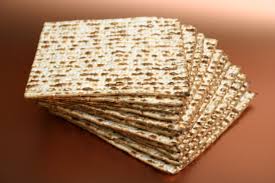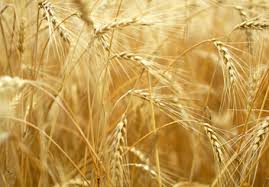Three Times a Year
You Are to Celebrate a Festival to Me
23: 14-17
Three times a year you are to celebrate a festival to Me DIG: How are these three festivals like and unlike each other? What do they celebrate? Why does God forbid sacrifice with yeast? How far into the future will the festival of Sukkot be celebrated?
REFLECT: What can you do to celebrate God’s goodness in your life?
Having twelve tribes as the foundation of the nation created great concern when it came to the matter of national unity and identity. The one thing that provided the cohesion necessary for national unity was Isra’el’s God and her religion. The preservation of Isra’el’s national, spiritual, and social unity was provided for by three major festivals, which formed the core of Isra’el’s religious calendar (also see Leviticus 23).441 Yet it is important to observe, that this section is closely tied to the Sabbath commands of verses 23:10-12. The foundation of each of the three festivals was the seven-day week, which climaxed on the Sabbath (Deuteronomy 16:3-4, 9, 13-15). Therefore, Sabbath was at the heart of Isra’el’s religious celebrations.442
Three times a year every able-bodied male Jew, who was at least twenty years old, was required to celebrate a festival to ADONAI, wherever the Tabernacle or Temple happened to be located (see the commentary on Leviticus Dw – God’s Appointed Times). First, it was Shiloh and then it was Jerusalem. These feasts are also mentioned in Numbers 9:1-14, 28:16-25, Deuteronomy 16:1-8.

The first feast was the Passover and the Feast of Unleavened Bread, which came in the early spring at the beginning of the barley harvest in the month of Abib (Nisan). It was an eight day feast which included the feast of the Passover for one day and for seven days eat bread made without yeast, as I command you. Do this at the appointed time in the month of Abib, for in that month you came out of Egypt. No one is to appear before Me empty handed, but to come with the Passover lamb sacrifice (23:15). The phrase, before Me, literally means before My face. Therefore, the offerings needed to be brought to the Tabernacle/Temple. This feast had many spiritual lessons to teach the children of Isra’el. Foremost was the fact that God constantly wanted sin to be put away from their midst. It implied complete separation from that which was evil. Yeast is, of course, always a symbol of sin and error in Scripture (Matthew 16:6, 11-12; First Corinthians 5:6, 8).443

The second feast to be commemorated was known as the Feast of Harvest, with the firstfruits of the crops you sow in your field (23:16a). The Greek speaking believers called it the Feast of Pentecost, because it was to be celebrated fifty days after the Sabbath of Passover (Leviticus 23:15-16). It was also held exactly seven weeks after the sickle had first been put to the grain. Therefore, it was also called the Feast of Weeks or Shauv’ot in Numbers 28:26. This feast was always a joyous occasion (Deuteronomy 16:9-11), because it was an expression of gratitude for all that God had provided for them (see my commentary on Acts Al – The Ruach ha-Kodesh Comes at Shavu’ot).

The third feast was the Feast of Ingathering at the end of the agricultural year, when you gather in your crops from the field (23:16b). This feast was also known as the Feast of Booths or Sukkot, because the people were commanded to make small booths to live in during the festival (Leviticus 23:34 and 39, Numbers 29:12-34, Deuteronomy 16:13-15). This feast will also be observed during the Millennial Kingdom. All the Gentile nations that will populate the Kingdom will be required to send a delegation to Jerusalem in order to worship the King at the time of the Feast of Sukkot. At that time, the Gentiles will pay their obligatory tribute to the King (Isaiah 60:11). Although the Gentile observation of the feast will be mandatory, not every nation will necessarily be willing to obey. Therefore, if any nation fails to send a delegation, rain will be withheld from it for that next year (Zechariah 14:16-19).444
Three times a year all the men are to appear before the Lord, ADONAI (23:17). These were constant reminders to Isra’el of God’s provisions for His people.445 Some early manuscripts substitute the word ark for Lord in this verse. The Hebrew word for Lord is haadon, and the word for ark is haaron. The reason for this change is apparently that the translators understood that the three festivals were to be held in the presence of the ark of the covenant of the Lord. However, because the name the Lord, the God of Isra’el is a common name in the TaNaKh (Exodus 34:23; Isaiah 3:1 and 10:33), no such change was necessary.446 The men were specifically mentioned because they were the heads of the households, but it is obvious that the women and the children also participated in these festivals (Deuteronomy 16:11-14).



Leave A Comment